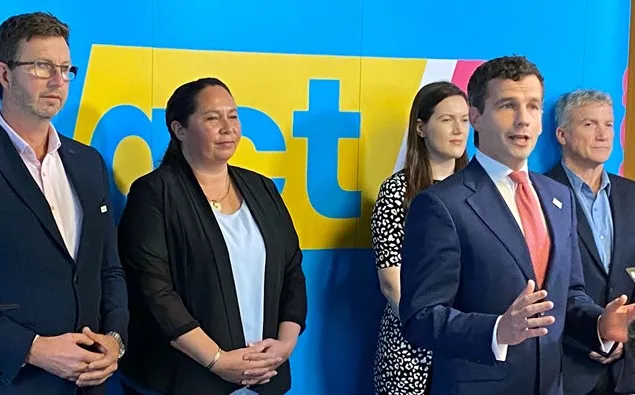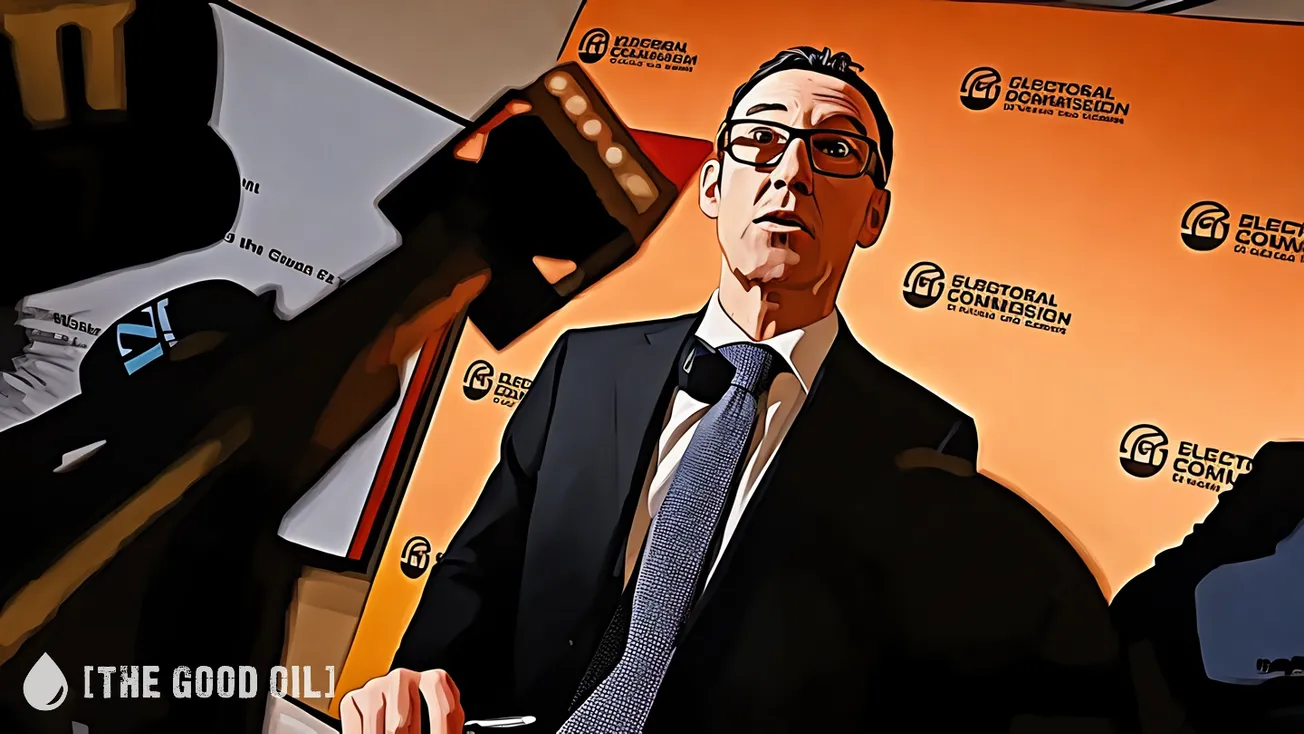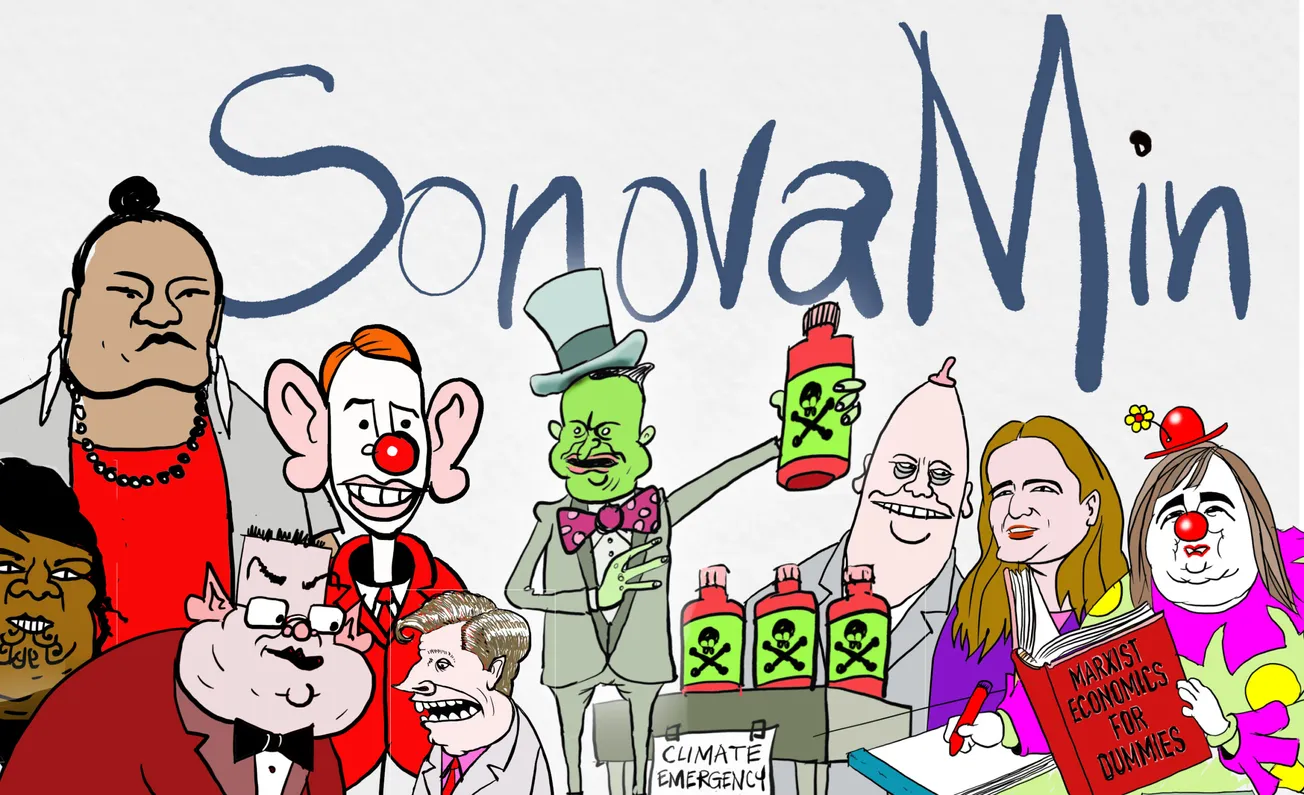Table of Contents
Don Brash
Don Brash was Reserve Bank Governor from 1988 to 2002, and National Party Leader from 2003 to 2006
I don’t suppose anybody will be terribly surprised when I say that my party vote will be going to ACT on 14 October.
I was a proud member of the National Party when I was in Parliament between 2002 and early 2007 and, of course, when I was leader of that party between late 2003 and late 2006. We went into the 2005 election with a policy platform which I was firmly committed to.
But over the years since, I’ve realised that I want a more vigorous policy reaction to the problems which face our country than the National Party is currently offering. Indeed, I realised that as early as 2011 following John Key’s decision to ignore the recommendations of the 2025 Taskforce, set up by his government with me as its chair to provide advice on how to close the gap in incomes between New Zealand and Australia by 2025. That was a major factor in my decision to contest the 2011 election as leader of the ACT Party.
I have been out of politics over the years since, though have retained an intense interest in what the various parties have offered.
As I look towards this year’s election, I would certainly prefer a Christopher-Luxon-led National Party coalition to the current Labour Government, and vastly prefer it to what appears likely to be the only plausible alternative – a Labour-Greens-Te Paati Maori coalition. Such a coalition would be even more of a disaster for New Zealand than the present government because it would almost certainly involve significantly higher taxes, higher inflation, and even more divisive race-based policies.
But I want something more than a Luxon-led National government, and for that I want a very strong ACT representation in the next government.
I have long been hugely impressed by David Seymour. He single-handedly kept the ACT flame burning during two parliamentary terms between 2014 and 2020, and turned down a ministerial appointment in the National government of that period because to have accepted such an appointment would have required him to abandon his advocacy of the end-of-life-choice Bill, which he believed in very strongly. Too few politicians of any colour turn down ministerial appointments if accepting such an appointment requires them to abandon something in which they firmly believe.
So Seymour is a conviction politician, and we have far too few of them in parliament.
I don’t agree with every single aspect of ACT’s policy, but I do agree with the overwhelming majority of their policies.
Unlike any other party which is contesting the election, ACT is open about the huge challenge which we face to get our fiscal house in order – it won’t be done by a little tinkering around the edges given the enormous increase in government spending which the current government has overseen over the last six years, and it certainly won’t be achieved by taxing the purchase of expensive houses by foreigners. The party has outlined a fairly comprehensive plan to get government spending under control, and until that is done there is little hope of getting government debt under control.
To the best of my knowledge, ACT is the only party which is talking openly about the crucial need to increase the rate of productivity growth in New Zealand – unless we do that, New Zealand will continue to drift down not, perhaps, in absolute terms but certainly relative to those countries we like to compare ourselves with. And of course our very slow growth in productivity is not just a matter which troubles economists, it means that increasingly we can’t afford the things that more affluent countries take for granted. Nurses complain that they are paid much less than those in Australia, and the same situation faces those in many other professions. Governments can vote a bit more money for nurses, and police officers, and so on, but the reality is that the New Zealand economy is poorer than the Australian economy, and that will only be fixed by a relentless focus on improving productivity. ACT is the only party making a big issue of that.
Related to that objective, ACT wants major restructuring of the education sector to ensure that all New Zealand children have the best possible opportunity to get the most that New Zealand has to offer, and a radical reduction in the number of mindless rules and regulations which have been foisted on both the farming and the business sector in recent years.
Like the National Party, ACT wants to deal more vigorously with crime and certainly sees no merit in the policy of the current government of trying hard to reduce the prison population – a worthy objective if crime were declining, but of course it is not.
Finally, for me a crucial need at this moment in New Zealand’s history is to determine once and for all whether we are to be a country where every citizen has equal political rights or whether we are to continue down the track on which we are currently travelling, where those who chance to have one or more Maori ancestors (always now with ancestors of other ethnicities also) have a constitutional preference to different treatment because of that ancestry. That track can only lead to racial discord and disaster.
David Seymour has not only been absolutely unambiguous about where he stands on that issue but also wants to lock into our unwritten constitution, by means of a referendum, the fundamental equality of all citizens.
Yes, Winston Peters is also strongly committed to equal citizenship, and I respect the decision of my long-term Hobson’s Pledge colleague to accept a position on the New Zealand First list. Should New Zealand First clear the five per cent threshold, that party would no doubt be pushing in the same direction as ACT on issues of race.
If race were the only issue in the election, I might be indifferent between ACT and New Zealand First, but of course it is not. We need something much more than we have now, and much more than National in isolation is promising.
At the moment, we are country which has almost everything going for it – abundant water, abundant land, great scenery, the rule of law and a population which overwhelmingly speaks the international language. But on our current track we are almost the slowest growing country in the world (only Equatorial Guinea is growing more slowly, according to the IMF), we are spending vastly more on imports of goods and services than we export, and we have some of the most expensive housing in the world. In other words, we are grossly under-performing as a country.
In my considered opinion, David Seymour’s ACT Party offers the best hope of extracting us from our current mess.








